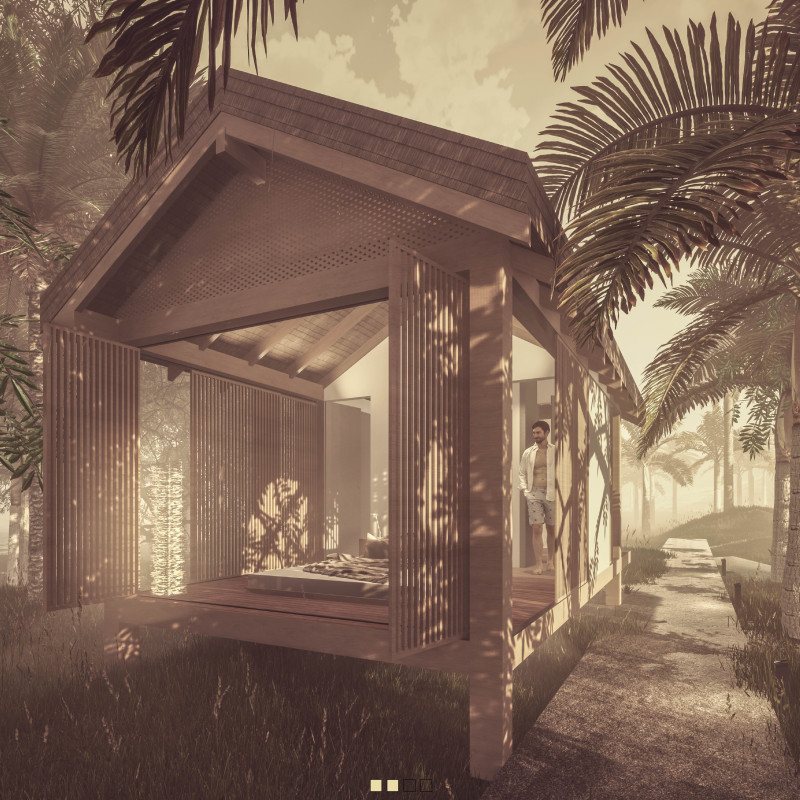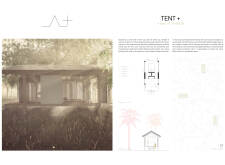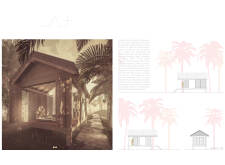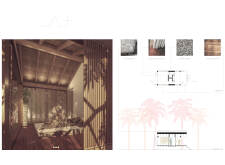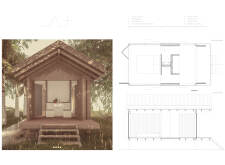5 key facts about this project
The tent+ project offers a functional space situated in the lowlands of Cambodia, a region well known for its pepper cultivation. Designed for multiple uses, it serves as a shelter and a community space for interaction and education about the environment. The overall concept focuses on simplicity and adaptability, enabling the structure to relate to its natural surroundings while addressing issues facing both local and global ecosystems.
Architecture Concept
The design is based on the idea that small, locally generated efforts can lead to significant changes in environmental awareness. By comparing these efforts to drops of water creating an ocean, the project underscores the impact of incremental actions. The tent+ encourages users to rethink their connection to nature, providing a setting that supports reflection and engagement.
Design Adaptability
Flexible usage defines the structure’s design. It can function as a private retreat, a place for communal gatherings, or an educational site for ecological matters. This versatility enhances the user experience, enabling individuals and groups to interact with the space in various ways. The lightweight nature of the design makes it easy to move, fostering exploration of different environmental contexts.
Materiality
Materials chosen for tent+ include a thatched roof, which serves as insulation and offers protection from the weather while blending well with the landscape. Mosquito protection enhances comfort for users, addressing the needs of the local climate. Pebble stones are used for flooring, adding a robust appearance that complements the environment, while rough plank floors add authenticity and durability to the overall design.
Connection to Nature
The design emphasizes a strong link to the natural environment. With thoughtful integration into the landscape, it allows users to experience the beauty of the site and its ecological significance. The architecture fosters a sense of connection and facilitates engagement with both nature and community, creating a space that invites people to reflect and interact.


